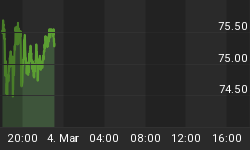It looks as if the Summer of 1929, has finally past. We are now experiencing "forced selling and unwinding of leverage on assets" that we stated would follow.
Fed Injections
On Monday, it was reported that the Fed has been injecting short term cash onto the balance sheet of Deutsche Bank. Two days later, Citigroup, J.P. Morgan Chase, Bank of America, and Wachovia all said they had borrowed $500 million each. According to Foundations of Financial Markets and Institutions by Fabozzi, Modigliani and Ferri; "Banks temporarily short of funds can borrow from the Fed at its discount window...Continual borrowing for long periods and in large amounts is thereby viewed as a sign of a bank's weakness" because the Fed is "the bank of last resort." Banks are borrowing from the Fed because they can't get the money anywhere else, not as they claim: "it is important at this time to take a leadership role in demonstrating the potential value of the Fed's primary credit facility and to encourage its use by other financial institutions." As we warned last November as the credit boom comes to an end: "'severe macroeconomic repercussions' are highly likely and that 'banking system capital' will be impaired." To think the Fed will save the day is to ignore the lessons of 1929: "the Federal Reserve can print money, but it cannot create credit or confidence. 'Money' is therefore hoarded, by either the public or the banks themselves (if they are concerned about an increase in redemptions)."
"The Whole Town's Gone Crazy"
To see the fearful psychology that mortgage lenders, hedge funds, and now money market funds and banks have been dealing with start at the 51 minute marker of this movie. George Bailey goes from "Float away to happy land on the bubbles" to "look we're still in business; we still got two bucks left." The run for cash has just started; we have a long way to go before most assets are undervalued in historical terms.
At Lamont Trading Advisors, we are liquidating historically overvalued assets and purchasing liquid U.S. Treasury Bills for our client's IRAs and brokerage accounts. For more about our wealth preservation services, visit our website. Our monthly Investment Analysis Report requires a subscription fee of $40 a month. Current subscribers are allowed to freely distribute this report with proper attribution.















